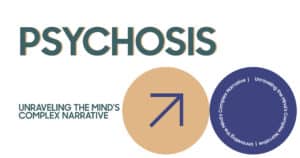Understanding MDQ Score:
Mental health screening is vital for early identification of psychiatric diagnoses. One widely used tool is the Mood Disorder Questionnaire (MDQ). Understanding the MDQ score helps clinicians guide effective treatment and improve the management of bipolar disorder and related emotional disorders.
Definition and Purpose of MDQ Score
The MDQ score evaluates symptom items linked to bipolar disorder. It focuses on hypomanic symptoms, manic episodes, and depressive episodes. Its purpose is to detect bipolar spectrum disorder and initiate appropriate outpatient treatment for a range of diagnoses, including substance use disorders and anxiety disorders.
Importance of Mental Health Screening
Mental health screening improves early detection of depressive disorder, bipolar depression, and unipolar depression. Screening reduces direct treatment costs by identifying needs early. It also helps recognize comorbid disorders like attention deficit hyperactivity disorder, alcohol use disorder, cocaine use disorder, and generalized anxiety disorder.
Mental Health Screening Tools
Overview of Screening Instruments
Various screening instruments exist, including the MDQ, PHQ-9, GAD-7, and bipolar symptom scales. These tools assess emotional situations, negative affect, emotion dysregulation, and risky behaviors. Comprehensive assessment ensures accurate diagnosis and covers the heterogeneous range of emotional disorders and psychosocial impairment.
Scoring Guidelines and Interpretations
MDQ scores reflect symptom profiles across a bipolar disorder type range. A positive screen usually indicates a significant risk for bipolar spectrum disorder and sometimes borderline personality disorder. Cutoff criteria and conventional criteria help minimize false positives and improve clinical validity analysis, especially in patients with impulsive behavior and emotion dysregulation.
Administering the MDQ
Effective Communication Strategies
Discussing mental health with patients requires simple language and patience. Building trust and rapport is essential to gather honest responses about symptom profiles and concurrent symptom items. Open dialogue fosters disclosure of impulsive behavior, risky behaviors, and negative emotions.
Discussing Mental Health with Patients
Clinicians must approach patients without judgment. Addressing core symptoms, negative symptoms, and the aversive nature of negative emotions validates their experiences. This method aligns with Treat Mental Health Tennessee’s mission to offer individualized, evidence-based care.
Building Trust and Rapport
A supportive environment improves accurate self-assessment tool results. Strong rapport helps in uncovering functional impairment, impairment ratings, and associations with impairment. Treat MH Tennessee specialists are trained to use these strategies daily, enhancing outcomes in our outpatient treatment facility.
Screening Tools and Techniques
Comparison of MDQ with Other Tools
Compared to GAD-7 or PHQ-9, the MDQ targets mania symptoms, hypomanic symptoms, and bipolar symptom scales. Other tools mainly focus on unipolar depression, anxiety disorders, or emotional disorders. Recognizing the dual nature of mood disorders helps improve screening measures and supplemental screening methods.
Supplemental Screening Methods
Additional screenings like Confirmatory Factor Analysis improve precision. Tools measuring components of emotion dysregulation, difficulties in emotion regulation, and assessments like the emotion regulation scale are valuable. These tools reinforce the need for comprehensive psychiatry and better implications for treatment.
Integrating Multiple Assessment Tools
Integrating the MDQ with other tools captures a broad range of psychopathology. Disorders like post-traumatic stress disorder and borderline personality disorder often coexist with mood instability. Understanding transdiagnostic personality traits allows clinicians to identify patterns of associations and design better treatment pathways.
Understanding DYMERS
Concept of Dysregulation of Mood, Energy, and Social Rhythms Syndrome
DYMERS focuses on instability across mood, energy, and social functioning. It explores how emotion dysregulation, negative emotions, and social rhythm disruption contribute to psychiatric diagnoses. This model supports examining the complex nature of emotional disorders in screening.
Screening Protocols for Bipolar Disorders
Screening protocols must address both positive activation and negative activation states. Clinicians need to assess symptom types, symptom items, and functional impairment to differentiate between bipolar depression, bipolar spectrum disorder, and other emotional disorders. Proper protocols improve detection and reduce false positives.
Broader Implications of MDQ Scores
Statistical Analyses in Screening
Analyses like Confirmatory Factor Analysis reveal dual factor structure and factor scores that differentiate symptom patterns. Understanding these helps explore the association with forms of psychopathology and symptom networks across a wide range of patients.
Analyzing Screening Data
Analyzing patterns of associations, negative associations, and impairment ratings is critical. Metrics reflecting functional impairment and ratings of impairment guide clinicians toward better assessment of clinical correlates and inform consideration of treatment options.
Presentation of Data through Tables
Tables summarizing symptom items, frequency of symptoms, and range of diagnoses help visualize complex findings. Presentation clarity improves construct validity and supports stronger conclusions about associations between bipolar symptom scales and emotional disorders.
Interpretation of Results
Interpretation must separate true positives from false positives through a comprehensive assessment. Accurate understanding of symptom items, core symptoms, and risk behaviors supports better implications for screening and lowers the risk of diagnostic error.
Evaluating Screening Protocols
Existing Hypotheses and New Insights
Previous studies show that MDQ scores are linked with emotion dysregulation and depressive disorder severity. New insights from Carpenter et al, Gruber J & Watson D, and Watson et al suggest that emotion dysregulation model factors may explain MDQ positivity, even outside pure bipolar disorder diagnosis.
Conflicts of Interest in Screening Practices
Unbiased screening remains vital. Adhering to American Psychiatric Association ethics prevents conflicts that could influence psychiatric diagnoses or assessment interpretation. Screening measures must reflect clinical realities without external influence.
Comparing Related Literature
Parallels with Similar Research
Comparative studies from the Harv Rev Psychiatry, Journal of Affective Disorders, and the American Journal of Psychiatry confirm the MDQ’s utility. Studies by Carpenter & Trull explore cutoff challenges, while others highlight MDQ’s detection of emotion dysregulation, negative emotions, and risky behaviors.
References and Further Reading
Future studies like a 3-year longitudinal study could refine cutoff criteria, improving screening accuracy. Works by Carpenter WT, Gruber J, and journals like Comprehensive Psychiatry provide deep insights into assessment tools, symptom dynamics, and functional impairment metrics.
Conclusion
If you or a loved one are experiencing symptoms of bipolar disorder, depressive disorder, or emotional dysregulation, Treat Mental Health Tennessee offers expert care through a wide range of assessment tools and treatment programs. We specialize in accurate diagnosis, effective treatment, and long-term management of complex emotional disorders.
FAQ's
The MDQ is primarily a screening tool, not a treatment tracker. However, repeated assessments can highlight shifts in mood patterns.
The MDQ was validated mainly in adults. For adolescents, clinicians often use modified versions or alternative tools.
Yes, medications for mood, anxiety, or substance use can influence symptom reporting and possibly impact the MDQ score outcomes.
After a positive screen, seek a full clinical evaluation. Only a qualified mental health provider can confirm a diagnosis and recommend treatment.









